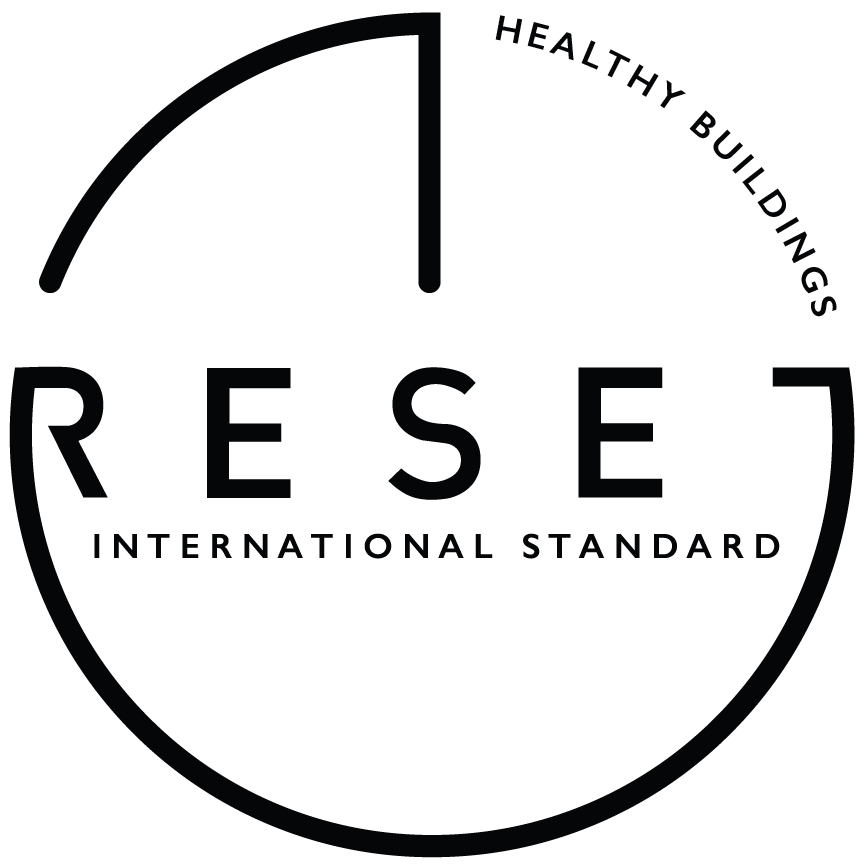BIOSPHERE 3 - DAMEISHA Vanke Center - First to obtain RESET Embodied Carbon for MEP
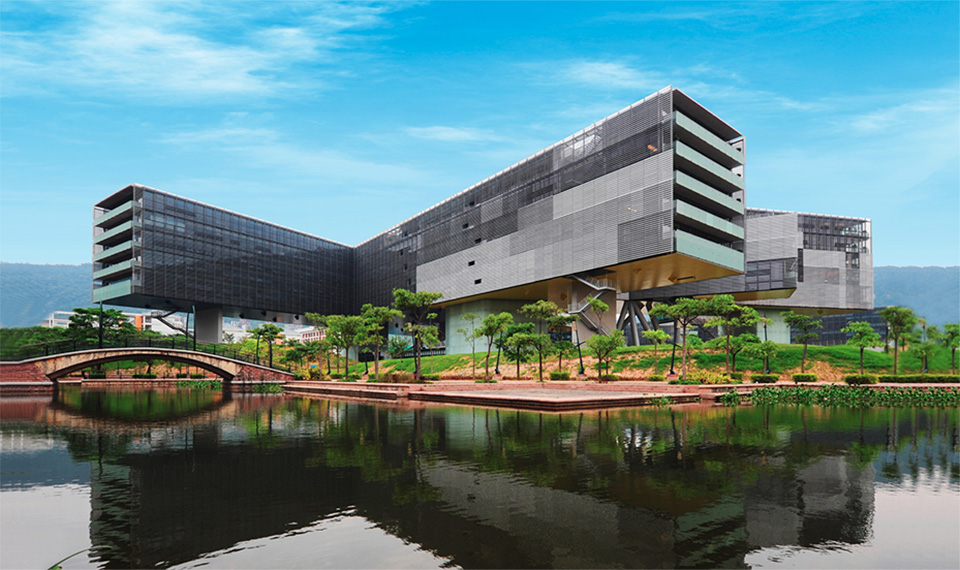
Biosphere 3 - Dameisha Vanke Center; Carbon-Neutral Park has successfully collected, measured and certified the embodied carbon data of their MEP electrical systems, filling an important data gap in the calculation of embodied carbon in the built environment.

Image Above: The logo of Biosphere 3. (Image Source: Copyright @ BIOSPHERE 3)
Biosphere 3, established by Wang Shi, founder of Vanke and a visionary in the green transformation of real estate, is a service and solution platform that brings together technologies and resources to offer comprehensive low-carbon solutions for buildings, parks, and communities. Biosphere 3 - Dameisha Vanke Center; Carbon-Neutral Park is a renovation project implementing the ideas and solutions that the Biosphere 3 is pursuing. It stands as a tangible example of innovative energy-saving technologies and eco-friendly management strategies that can be implemented today.
Filling a Data Gap in MEP
MEP (Mechanical, Electrical, and Plumbing) systems in a building can account for hundreds of meters of cabling, ducting and piping, mostly comprised of materials with a substantial carbon footprint; metals, plastics and insulation materials (fiberglass or mineral). Considering the volume and type of materials used, MEP should represent a substantial portion of a project’s embodied carbon.
However, MEP has been largely ignored and unaccounted for in the embodied carbon assessments of projects. This is primarily due to the lack of available data on mechanical, electrical and plumbing products. As a result, the industry is largely unaware of the impact that MEP plays in embodied carbon emissions throughout the lifecycle of a building.
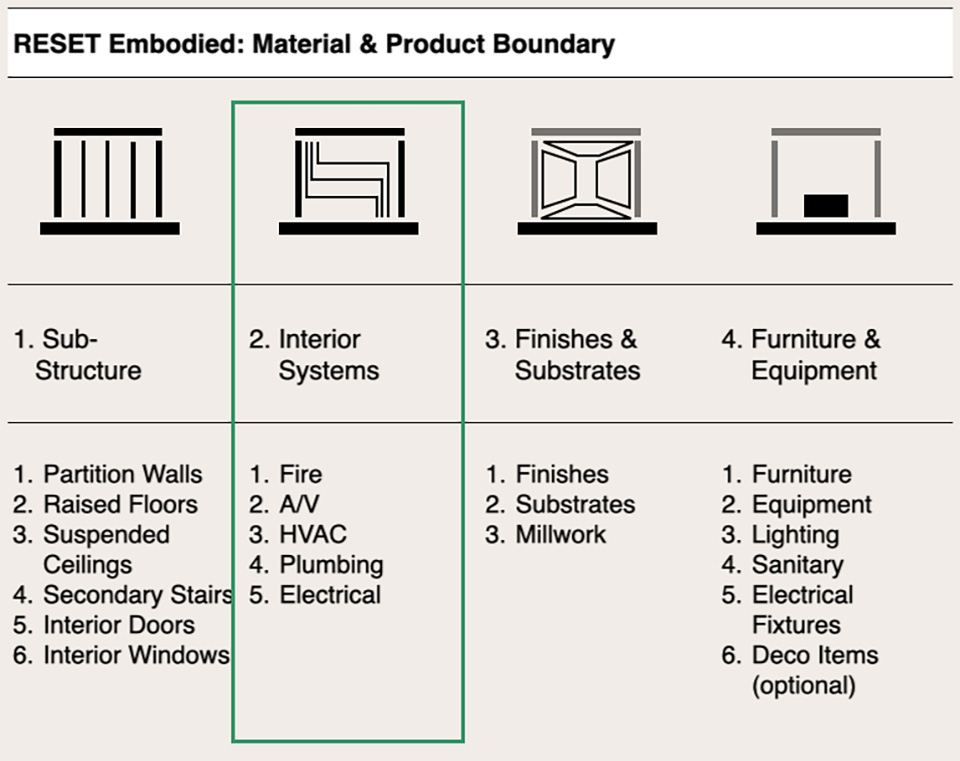
Image Above: Introduction of the Material & Product Boundaries (Image Source: Copyright @ GIGA)
The RESET Embodied Standard divides material & project boundaries into four interior categories: 1) Sub-Structure, 2) Interior Systems (MEP), 3) Finishes & Substrates, and 4) Furniture, Fixtures & Equipment. Most projects only include sections 1, 3 & 4 within their assessment boundary. Section 2 (MEP) is excluded due to its complexity.
The Biosphere 3 team took the opposite approach, choosing to focus on Section 2 in order to fill an important data gap that could benefit the entire industry. Within MEP, the team further zeroed in on electrical products.

Image Above: The working environment of Biosphere 3 - Dameisha Vanke Center; Carbon-Neutral Park (Image Source: Copyright @ BIOSPHERE 3)
Project Highlights
Leveraging the RESET Embodied Standard, the Biosphere 3 team was able to develop new embodied carbon data and directly quantify the emissions of their electrical system with the following results:
Embodied Carbon Result (A1-A5): 86,327.27 kgCO2-eq
Embodied Carbon Result Per Square Meter: 7.85 kgCO2/m2
Following the process and requirements from the RESET Embodied Carbon Standard, the Biosphere 3 team collected the data necessary for conducting a comprehensive lifecycle assessment of the main electrical equipment used. By tracking the equipment’s production, transportation, and installation, the team effectively quantified the embodied carbon emissions associated with stages A1-A5 in the lifecycle of the project. The final results were audited as per the RESET Standard for quality and accuracy.
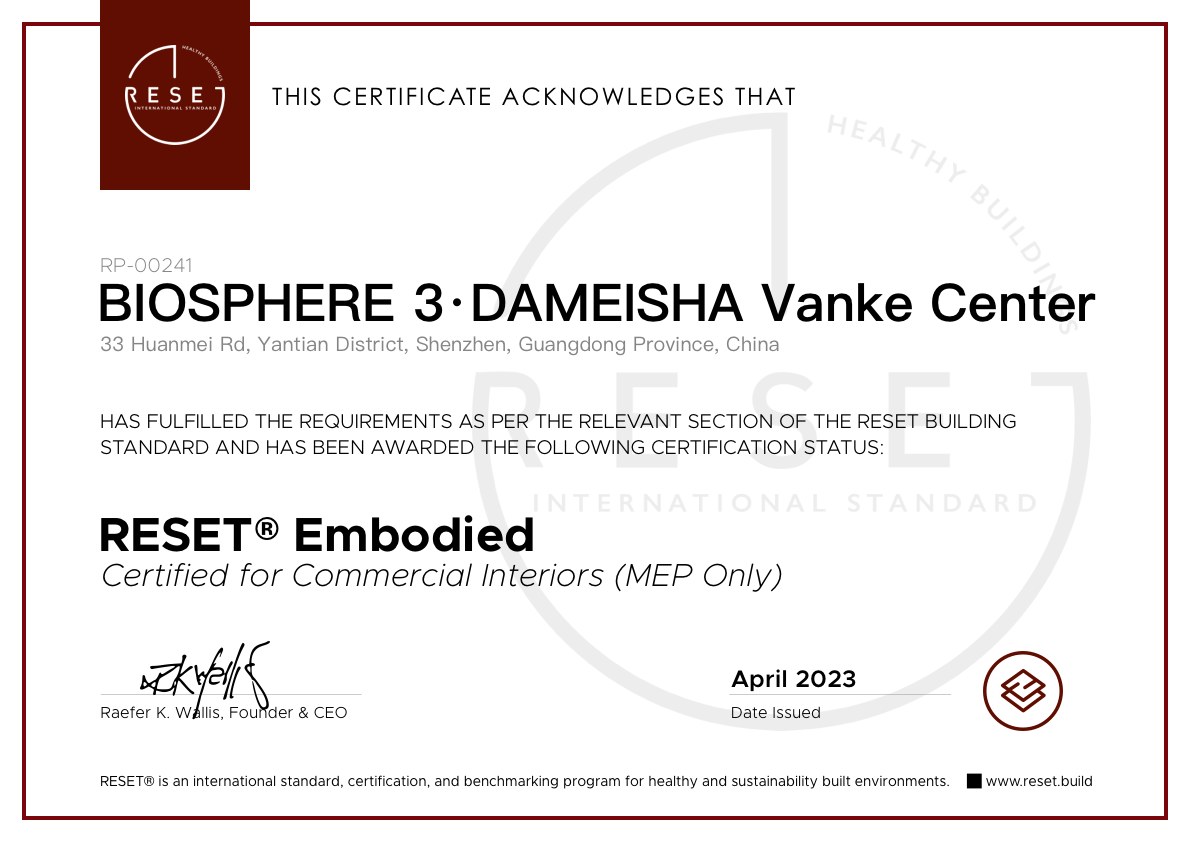
Image Above: The Certificate (Image Source: Copyright @ GIGA)
The RESET Standard was launched in 2013 as the world’s leading performance-driven building standard and certification program, focusing on measurable results. It provides a holistic measure of the construction and operational impacts of real estate on sustainability and health.
The RESET Embodied Standard, a standard within the family of RESET Standards, focuses on evaluating the carbon, circularity, and health performance of building materials and products in projects.
Ground-breaking Significance
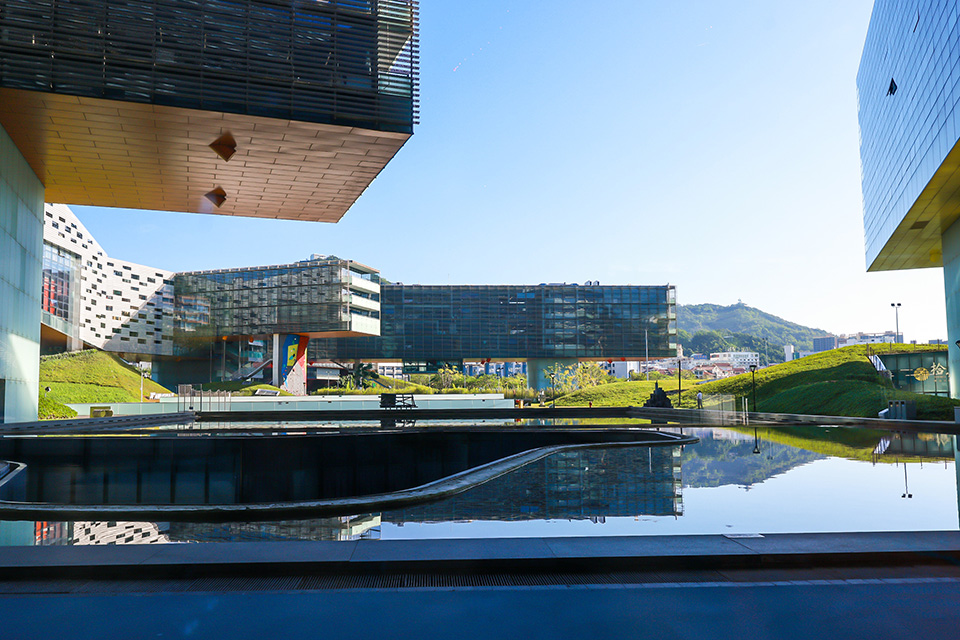
Image Above: Biosphere 3 - Dameisha Vanke Center; Carbon-Neutral Park (Image Source: Copyright @ BIOSPHERE 3)
This pilot project initiated by the Biosphere 3 team fills an important data gap with respect to quantifying the embodied carbon of electrical systems in MEP. The completion of this report and the RESET Embodied Certification for this project enables Biosphere 3 and RESET Embodied projects to obtain a more holistic view of embodied carbon, while also establishing a more complete baseline for future projects to benchmark against.
RESET celebrates Biosphere 3 for being the first to pursue the RESET Embodied Carbon Standard for MEP, by fostering the development of new datasets for the real estate industry.
About RESET®
RESET® is a data standard, accompanied by a set of assessment tools, created and managed by GIGA to develop actionable, long term strategies towards health and sustainability for the built environment. RESET focuses on creating a structure around data and analytics to generate opportunities for improvement and optimizations by combining the development of continuous monitoring and cloud software to increase the visibility of health and sustainability data in the built environment.
For more information about RESET, please visit: https://www.reset.build/
